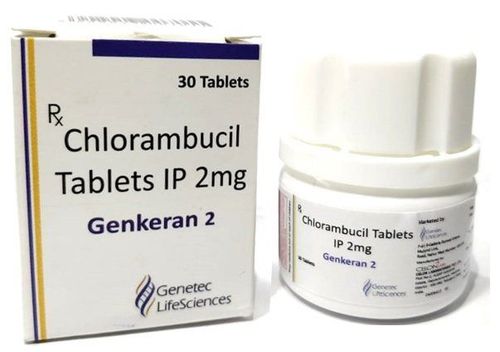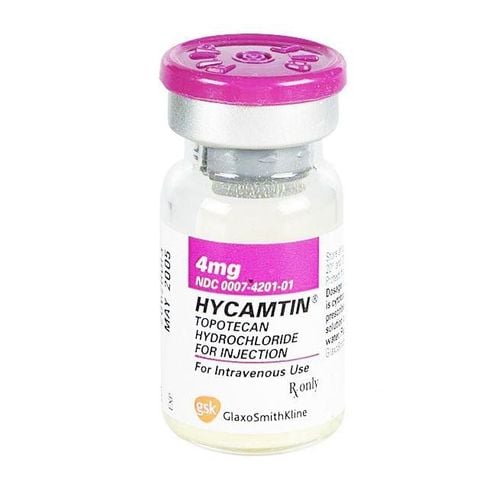This is an automatically translated article.
Sotorasib is a medicine indicated to treat certain types of cancer. Sotorasib is used to inhibit the growth of cancer cells. However, in the process of using sotorasib, there should be some notes about the side effects of the drug as well as the correct use of the drug.
1. Uses of sotorasib
The drug sotorasib was studied for the treatment of non-small cell lung cancer (NSCLC), caused by the KRAS-G12C mutation. Sotorasib works by finding and blocking cells that mutate KRAS-G12C, a mutated protein found in some cancers. In some cancers, mutations cause this protein to become overactive, causing cells to grow and divide very quickly. Thus, by inhibiting the KRAS-G12C mutation, the active ingredient sotorasib helps prevent the uncontrolled growth of cells that contribute to tumor formation. Patients with cancer will need to check the tumor for this type of mutation and treat it.
2. How to use Sotorasib
Sotorasib is available in tablet form and is recommended to be taken once daily with or without meals. If you miss a dose, take it as soon as you remember. However, if more than 6 hours have passed since it was time to take your dose, skip that dose and take your next dose the next day. In case the patient vomits after using sotorasib, it is not recommended to take another dose to supplement. Take your next dose the next day. Do not take 2 doses at the same time to make up for a missed dose.
Trying to take sotorasib at the same time every day will increase the effect of the medicine. The patient should swallow the tablet whole, without breaking, crushing or chewing it. If it is not possible to swallow the sotorasib tablet whole, the patient can add it to 120 ml of filtered water without crushing the tablet and stir until the tablet is dissolved into small pieces (because sotorasib does not dissolve completely in water). Take the medicine as soon as it is mixed or it should be taken within 2 hours of mixing.
It is important to make sure that only the correct amount of medicine is taken at a time. Before each dose of medicine, double-check that the medicine you are taking is correct.
3. Possible side effects when using Sotorasib
During treatment with sotorasib, patients may experience some unwanted side effects. So, there are a few things you can do to help manage the side effects of sotorasib. Tell your doctor if you have any of the following health problems. To be able to come up with the best solution for you. Here are some of the most common side effects :
Diarrhea Doctors can recommend medications to reduce diarrhea . Also, try eating low-fiber, bland foods, such as steamed rice and boiled or grilled chicken. Avoid eating fresh fruits, vegetables, whole grain breads, cereals and nuts. Soluble fiber is found in some foods and absorbs fluids, which can help relieve diarrhea. Foods rich in soluble fiber include: apple sauce, bananas (ripe), canned fruit, oranges, boiled potatoes, white rice, white flour products, oatmeal, rice cream, ice cream wheat and potato chips. Drink 8-10 glasses of filtered water, every day to prevent dehydration.
Electrolyte abnormalities This medicine may affect the normal levels of electrolytes in the body such as sodium, calcium, etc. Monitor these with blood tests. If levels of these indicators become too low, doctors may prescribe specific electrolytes to be given intravenously or orally. Do not take any supplements without consulting your doctor first.
Musculoskeletal or joint pain Patients may be prescribed medications to reduce pain when using sotorasib.
Body fatigue During treatment with sotorasib, the patient often feels exhausted, the body is tired and often does not improve even with rest. During cancer treatment and for a period of time afterward, patients may need to adjust their timing to manage fatigue. Schedule a time to rest during the day, get some exercise to help fight stress and fatigue. Patients can take a simple walk every day to improve their health. Consult your doctor if you experience fatigue.
Nausea or vomiting Talk to your doctor when you have symptoms such as nausea or vomiting, he or she may prescribe medication to help you control these symptoms. In addition, the patient can make useful dietary changes. Avoid eating things that can worsen symptoms, such as greasy or fatty foods, spicy or sour spices such as (lemon, tomatoes, oranges). Try salty crackers or ginger-flavored drinks to ease symptoms.
Hepatotoxicity Sotorasib can cause liver toxicity, so your doctor can monitor it using blood tests called liver function tests. Tell your doctor if you notice yellow skin or eyes, dark or brown urine, or pain in your abdomen, as these could be signs of liver toxicity.
Cause infection and decrease white blood cell count (leukopenia or neutropenia) White blood cells (WBC) are important in fighting infection. While being treated, your white blood cell count may drop, especially your white blood cells, putting you at higher risk of infection. Patients should notify their doctor or healthcare provider immediately if they develop symptoms such as fever (high temperature above 38°C), sore throat, cold, difficulty breathing, cough, burning when urinating. .
In addition, patients may experience other, but less common side effects, such as pneumonia or interstitial lung disease. Patients may develop pneumonia while taking sotorasib. Contact your doctor right away if you experience new or worsening symptoms, including shortness of breath, cough, or fever.
4. Sotorasib drug interactions
When using sotorasib, the blood levels of the patient may be affected if it is taken with certain foods and other drugs. These include: grapefruit, grapefruit juice, the drug ketoconazole (a fungicide), the drug rifampin (a medicine for tuberculosis), the drug phenytoin (an anti-epileptic drug). Tell your doctor about all medications and supplements you are taking. If the patient is on warfarin, monitor the INR in a blood clotting test. Because sotorasib may increase bleeding time.
Sotorasib may also be affected by medicines used to treat heartburn. Do not take with proton pump inhibitors such as: omeprazole esomeprazole, pantoprazole, lansoprazole or H2 receptor antagonists eg famotidine. If taking with a local antacid such as calcium carbonate, take sotorasib 4 hours before or 10 hours after the local antacid.
A note when using sotorasib is that during pregnancy, the fetus when exposed to sotorasib can cause birth defects. Therefore, you should not become pregnant while taking this medicine. Effective birth control is needed during treatment with sotorasib. Breast-feeding is not recommended while taking this medicine and for 1 week after the last dose of treatment.
Please store the medicine in a dry place, away from direct sunlight. Do not keep near children and pets, do not use when the medicine has expired.
Sotorasib is a brand name drug for the treatment of non-small cell lung cancer and inhibits the KRAS-G12C mutation. During the use of the drug, follow the instructions of your doctor to avoid unwanted effects. If you experience any problems while taking sotorasib, see your doctor immediately for advice.
Follow Vinmec International General Hospital website to get more health, nutrition and beauty information to protect the health of yourself and your loved ones in your family.
Please dial HOTLINE for more information or register for an appointment HERE. Download MyVinmec app to make appointments faster and to manage your bookings easily.
Reference source: oncolink.org













